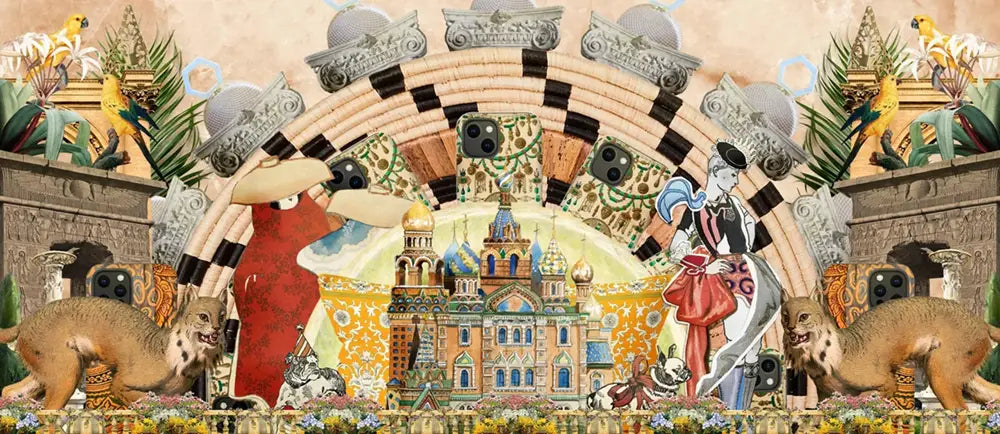14 Artists' Habits & Rituals That Shaped Masterpieces
10 Trippy Botanical Prints for Op Art Nerds
In the hush of jade echoes and viridian-lit delirium, these 10 trippy botanical prints become portals. Secret orchards of ancient riddles and digital illusions. Where the wilderness of your subconscious dreaming swallows you whole and optic nerves ignite.
10 Floral Pattern Art Prints for Vintage Design Nerds
These 10 floral pattern art prints are constellations of color. They breathe. Convulse. Revealing ancient memories of woodblock whispers and brushstroke myths. Seedlings of past epochs, tangled in the roots of cultural exchange and aesthetic devotion.
10 Pieces of Vintage Fashion Wall Art for Design Nerds
From the powdered precision of Rococo folds to 1930s surrealist gloves that grin in the face of austerity, these 10 art prints turn time inside-out. Each fold an archive of succulent gestures. Each color a breath of vanished nights reconstituted in pigment.
10 Nude Male Art Prints for History Nerds
Here, the nude male body unfolds across centuries. From the honeyed glint of Sargent’s bathers to the smoky shadows of von Gloeden’s biblical figure, each is a living archive. Signposts to lost orgies and dusty academies... dreaming of marble, muscle, oil & sweat.
10 Japanese Bird Art Prints for History Nerds
10 birds beckon from paper, each a totem of flight and stillness, myth and botanical devotion. Their wings beat against the skin of centuries, captured in the fine rain of pigment that echoes a thousand seasons of Japanese ritual and whispered ceremony.
10 Black and White iPhone Cases for Modern Art Nerds
More than covers for circuitry, these 10 iPhone cases are relics of dream and memory. Uncovering subconscious fragments of Japanese gardens, churning oceans, Berlin’s botanical obsessions, Parisian salons and Gothic mythologies.
10 Nude Male iPhone Cases for Art History Nerds
These 10 iPhone cases radiate with the sensual pulse of the homoerotic gaze, celebrating the male form as a site of pleasure and rebellion. Let them transform your device into a shrine of longing. Erotic keepsakes of the male nude’s rich art history.
10 Printed Fabric iPhone Cases for Decorative Art Nerds
10 cases shaped by fabric that once protected bodies, announced style & marked alliances. Cotton, wool, silk, flax—carrying fields & feasts, caravans & dowries. Evolving into the glow of a modern shrine. Each a scroll of ancestral labor and aesthetic ritual.
10 Tiger iPhone Cases for Eclectic Art Nerds
Tigers were one of the first abstract artists. Their bodies carry glyphs that defy mimicry: asymmetrical, high-contrast, always in motion. Before pattern had theory, tigers wore it. And each case transmits a different dialect of tiger code—visual, mythic, material.
10 Bird iPhone Cases Rewriting Art and Sky
These 10 bird art iPhone cases function as surreal cartography: tracing lines from vanished species to imperial silks, woodblock prophecy to surrealist equation. Each case a species of reverie — 10 chances to molt the visible and enter the mythic.
Mad Muse: A Cultural History of the Tortured Genius
From Plato’s ecstatic seizure to Kusama’s self-curated hallucinations, the link between madness and brilliance has never belonged to biology or metaphor alone. It belongs to society’s need to pathologize prophecy, sanctify breakdown, or canonize pain.















